Personalities
 |
 |
 |
 |
 |
 |
 |
The Vocation of Charlemagne - I
Analogy between Charlemagne & Moses
When one speaks of Charlemagne’s deeds and grandeur, it brings to my mind the extraordinary figure of Moses with his deeds and grandeur. Moses founded for the Chosen People an order that was a pre-figure of Christendom. He was the one who received from God the revelation of the Ten Commandments and who freed the Chosen People from captivity in Egypt and led them to the gates of the Promised Land. Doing so, he provided the fundamental elements for the Chosen People to establish itself as a nation and to create the conditions for the Savior to be born of it.
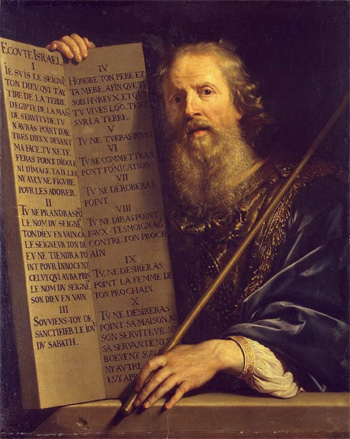
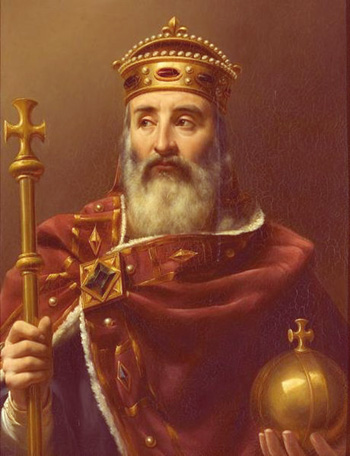 Charlemagne had a task that, in its essence, was analogous to that of Moses. He took the Catholic people – of which the Chosen People was a pre-figure – who was facing an imminent risk of falling into servitude under its worse adversaries, and conquered all those adversaries through a tremendous fight and established the foundations of Christian Civilization.
Charlemagne had a task that, in its essence, was analogous to that of Moses. He took the Catholic people – of which the Chosen People was a pre-figure – who was facing an imminent risk of falling into servitude under its worse adversaries, and conquered all those adversaries through a tremendous fight and established the foundations of Christian Civilization.
For us to have an idea of what the task of Charlemagne was, we have to consider the conditions of that time. You know that, until the 5th century of our era, the Western Roman Empire held sway over Western Europe. In very loose lines its frontiers extended from the Rhine and the Danube to Portugal, and from England to Italy. It was, therefore, an immense unity.
The roads of communication at that time made it very difficult for an Emperor to govern such a massive expanse of territory. Thus, the dimensions of that Empire demanded a mammoth political and administrative structure to keep it united.
This Empire was broken by the avalanche of the barbarian invasions. The barbarians were either Arians or pagans. Arianism was a heresy that can vaguely be compared to Protestantism. The Arian was as anti-Catholic as a Protestant: that is, he had been cut off from the Church; he was a heretic, an excommunicate and the enemy.
An Arian Bishop named Ulfilas had perverted the pagan barbarians to the Arian religion. So, a great number of the barbarians who invaded the Roman Empire, which was Catholic, were Arian and wanted to impose the Arian religion. Others were pagans and were intent on imposing Paganism. Those barbarians, as the name indicates, were by habit, psychology and natural tendency opposed to civilization. So, wherever they established themselves they destroyed civilization.
For you to have an idea of the degree of primitivism of those barbarians, it suffices to note that they would sleep in the public squares because they felt suffocated sleeping inside a house. Further, some tribes were unable to sleep even in the squares and had to leave the walls of the cities to sleep in the open fields or the woods in order not to feel asphyxiated.
A problem the barbarians had to face was whether or not they should become civilized. They saw the Romans who were well-raised and educated, but were corrupt and poor soldiers, and they attributed the latter to civilization. So, they had a great scorn for any kind of good formation and education. They thought that to be civilized was synonymous with being effeminate.
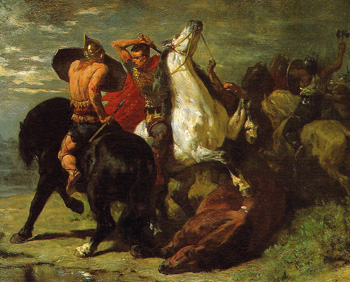 As the barbarians established themselves on European soil and began to impose their detestable tyranny, the Empire fell apart but the Catholic Church remained standing. The Empire disappeared, but the Church with her dioceses and monasteries and churches continued to stand.
As the barbarians established themselves on European soil and began to impose their detestable tyranny, the Empire fell apart but the Catholic Church remained standing. The Empire disappeared, but the Church with her dioceses and monasteries and churches continued to stand.
From this perspective, the way to save Europe and prevent it from falling into the abyss was to fortify the Church and thus rebuild Europe, raising it from the miserable condition into which it had fallen.
On top of that situation came a new catastrophe. Due to the softness and betrayal of the Ostrogoths who lived on the Iberian Peninsula, Spain was invaded by the Muslims. The Arabs took over almost all of Spain and, from that base, they tried to invade that semi-Roman, semi-barbarian Europe. Other Muslims coming from Africa in ships landed in southern France and Italy. Thus, that wounded reality which was Europe was also subjected to the Muslim onslaught.
It was at this crucial moment when everything seemed to be lost that God raised up a providential man, Charlemagne. A man, who I believe, was a true prophet; a man who would build the kingdom of God because he had the gift of bringing together peoples and uniting their wills to accomplish that goal. Furthermore, he had the gift to conquer all the obstacles that stood in the way of the realization of that new order.
Continued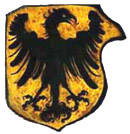

Posted September 5, 2018

Above, Moses; below, Charlemagne

For us to have an idea of what the task of Charlemagne was, we have to consider the conditions of that time. You know that, until the 5th century of our era, the Western Roman Empire held sway over Western Europe. In very loose lines its frontiers extended from the Rhine and the Danube to Portugal, and from England to Italy. It was, therefore, an immense unity.
The roads of communication at that time made it very difficult for an Emperor to govern such a massive expanse of territory. Thus, the dimensions of that Empire demanded a mammoth political and administrative structure to keep it united.
This Empire was broken by the avalanche of the barbarian invasions. The barbarians were either Arians or pagans. Arianism was a heresy that can vaguely be compared to Protestantism. The Arian was as anti-Catholic as a Protestant: that is, he had been cut off from the Church; he was a heretic, an excommunicate and the enemy.
An Arian Bishop named Ulfilas had perverted the pagan barbarians to the Arian religion. So, a great number of the barbarians who invaded the Roman Empire, which was Catholic, were Arian and wanted to impose the Arian religion. Others were pagans and were intent on imposing Paganism. Those barbarians, as the name indicates, were by habit, psychology and natural tendency opposed to civilization. So, wherever they established themselves they destroyed civilization.
For you to have an idea of the degree of primitivism of those barbarians, it suffices to note that they would sleep in the public squares because they felt suffocated sleeping inside a house. Further, some tribes were unable to sleep even in the squares and had to leave the walls of the cities to sleep in the open fields or the woods in order not to feel asphyxiated.
A problem the barbarians had to face was whether or not they should become civilized. They saw the Romans who were well-raised and educated, but were corrupt and poor soldiers, and they attributed the latter to civilization. So, they had a great scorn for any kind of good formation and education. They thought that to be civilized was synonymous with being effeminate.

Barbarians invade the Roman Empire
From this perspective, the way to save Europe and prevent it from falling into the abyss was to fortify the Church and thus rebuild Europe, raising it from the miserable condition into which it had fallen.
On top of that situation came a new catastrophe. Due to the softness and betrayal of the Ostrogoths who lived on the Iberian Peninsula, Spain was invaded by the Muslims. The Arabs took over almost all of Spain and, from that base, they tried to invade that semi-Roman, semi-barbarian Europe. Other Muslims coming from Africa in ships landed in southern France and Italy. Thus, that wounded reality which was Europe was also subjected to the Muslim onslaught.
It was at this crucial moment when everything seemed to be lost that God raised up a providential man, Charlemagne. A man, who I believe, was a true prophet; a man who would build the kingdom of God because he had the gift of bringing together peoples and uniting their wills to accomplish that goal. Furthermore, he had the gift to conquer all the obstacles that stood in the way of the realization of that new order.
Continued


Posted September 5, 2018
______________________
______________________
 Volume I |
 Volume II |
 Volume III |
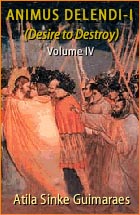 Volume IV |
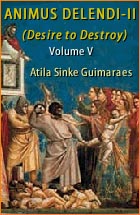 Volume V |
 Volume VI |
 Volume VII |
 Volume VIII |
 Volume IX |
 Volume X |
 Volume XI |
 Special Edition |


